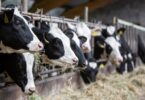Dr. Steeve Giguère, diplomate of the American College of Veterinary Internal Medicine, has been appointed to the Marguerite Thomas Hodgson Chair of Equine Studies in the College of Veterinary Medicine.
The Hodgson Chair is funded by a $1 million endowment established by a donation to the department of large animal medicine from Marguerite Thomas Hodgson.
The endowment supports a faculty member who will conduct research to improve equine health and teach students state-of-the-art techniques in equine medicine.
Giguère received his doctorate in veterinary medicine from the University of Montreal, where he continued to complete an internship in equine medicine and surgery. He then went on to complete a residency in large animal internal medicine at New Bolton Center at the University of Pennsylvania and a Ph.D. in veterinary microbiology and immunology from the Ontario Veterinary College at the University of Guelph.
“This is the first endowed chair in equine medicine at UGA, and it has enabled us to hire a superbly qualified faculty member who will enhance our tradition of excellence in equine studies,” said Dr. Sheila Allen, dean of the College of Veterinary Medicine.
Giguère comes to UGA from the department of large animal clinical sciences at the University of Florida, where he was honored with numerous teaching awards including the Carl Norden-Pfizer Distinguished Teacher Award.
“There is nothing more gratifying than seeing the evolution of a veterinary student from their first day on clinics, when they have much theoretical knowledge that they do not know how to apply, to their last rotation, when they have evolved into astute young clinicians,” said Giguére.
“The endowment comes at a very opportune time because it allows us to solidify and expand an already successful research program in the department,” said Dr. Andrew Parks, professor and head of the department of large animal medicine, A major focus of Giguère’s research is the bacterial pathogen Rhodococcus equi.
“Pneumonia caused by Rhodococcus is a very common problem in foals, especially on large breeding farms, and I am particularly interested in better understanding how the immune system of foals differs from that of adult horses,” he said.







